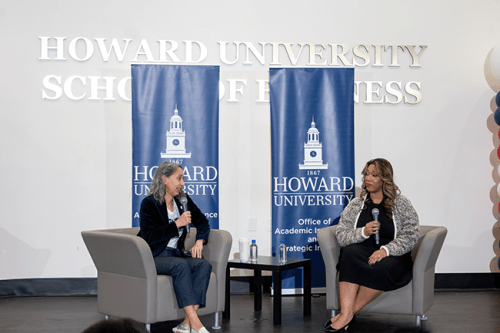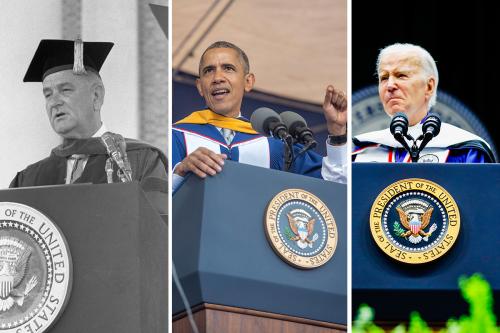
WASHINGTON – The Howard University’s 1867 Health Innovations Project and Center for Sickle Cell Disease have entered into a new partnership with the U.S. Department of Health and Human Services (HHS) aimed at finding ways to use technology and data to improve the everyday lives of patients with sickle cell disease, or SCD.
“Sickle cell disease is the most common genetic disease in the United States and primarily affects African Americans and other people of African descent,” said James G. Taylor VI, M.D., director of the Howard University Center for Sickle Cell Disease. “It leads to anemia, pain crisis, strokes, and other problems. We are excited to partner with HHS to use technology and data to address the long-standing challenges that patients with sickle cell disease face.”
To kick off the three-year partnership, Howard University and Health and Human Services will hold a new sickle cell disease innovation contest, called the Health+ Sickle Cell Disease Healthathon. The virtual event will take place Sept. 7-25. Patients, advocates, clinicians, researchers, designers, technologists, government employees, payers, policymakers, and members of the public will be invited to participate.
“HHS is working with Howard University to bring data-driven insights to a disease that deserves attention, innovation, and tech solutions. For far too long, people have suffered stigmatization and daily pain from this disease. Together, we can modernize sickle cell treatment and help people live better lives with sickle cell disease," said Admiral Brett P. Giroir, M.D., Assistant Secretary for Health at HHS.
Participants in the Health+ SCD Healthathon will be invited to develop and prototype solutions and ideas in response to specific challenges affecting patients with sickle cell disease, such as barriers in hospital emergency rooms and transition to adulthood. The prototype solutions and ideas will be reviewed by judges and contest winners will be awarded on Sept. 25 during a Healthathon Finale event. Learn more here
“The strategic partnership with HHS will identify and support opportunities for the government and private sector to accelerate meaningful innovation and technology solutions that address the challenges patients with SCD face on a daily basis,” said Michael Crawford, associate dean for strategy, outreach, and innovation at the Howard University College of Medicine.
The new sickle cell partnership will tackle long-standing challenges related to care for individuals and families affected by the disease: patient transition from pediatric to adult medicine, improving care during emergency department visits, enhancing patient and family engagement, and strengthening overall care coordination for sickle cell patients. About 100,000 Americans suffer from some form of the disease.
Under the partnership, the 1867 Health Innovations Project and the Center for Sickle Cell Disease will take the lead in gathering and collecting datasets related to or containing a subset of detail relevant to SCD, securing confirmation of data usage during the Healthathon event, and providing technology, innovation, and SCD expertise to promote the broad interest of the Healthathon.
The Center for Sickle Cell Disease, the Howard University College of Medicine, and Howard University Hospital have long served as a major international center for medical care, research, and other resources for people with sickle cell disease. Howard University’s Center for Sickle Cell Disease was founded in 1972 by the late Roland B. Scott, M.D., and has a distinguished history of leading clinical investigation in sickle cell disease.
Howard University launched the 1867 Health Innovations Project in April. Aptly named after the year the University was founded, 1867 aims to collaborate with innovators, entrepreneurs, researchers, and corporate partners to tackle complex health challenges confronting underserved populations in the Washington, D.C. region and beyond.
For more information about the 1867 Health Innovations Project, contact Michael Crawford, associate dean in the Howard University College of Medicine, michael.crawford@howard.edu
About Howard University
Founded in 1867, Howard University is a private, research university that is comprised of 13 schools and colleges. Students pursue studies in more than 120 areas leading to undergraduate, graduate and professional degrees. The University operates with a commitment to Excellence in Truth and Service and has produced one Schwarzman Scholar, three Marshall Scholars, four Rhodes Scholars, 11 Truman Scholars, 25 Pickering Fellows, and more than 165 Fulbright recipients. Howard also produces more on-campus African-American Ph.D. recipients than any other university in the United States. For more information on Howard University, visit www.howard.edu.




